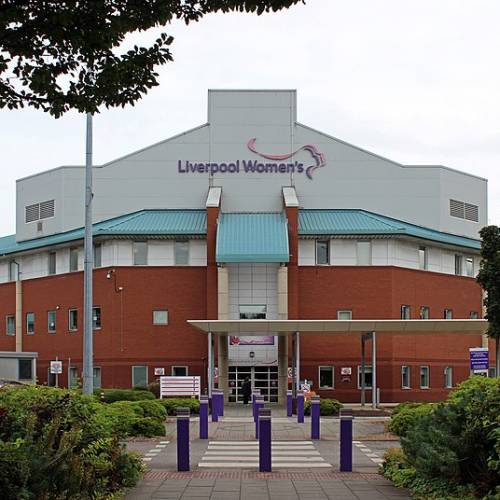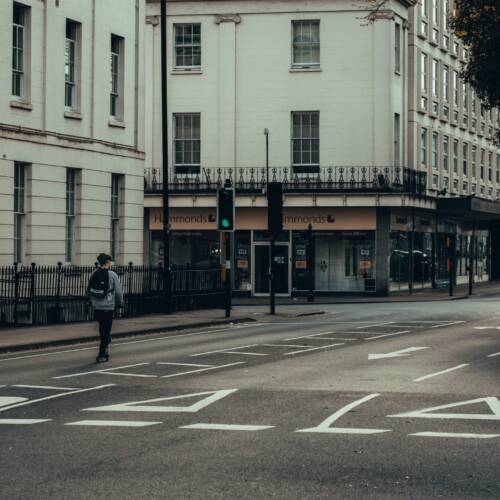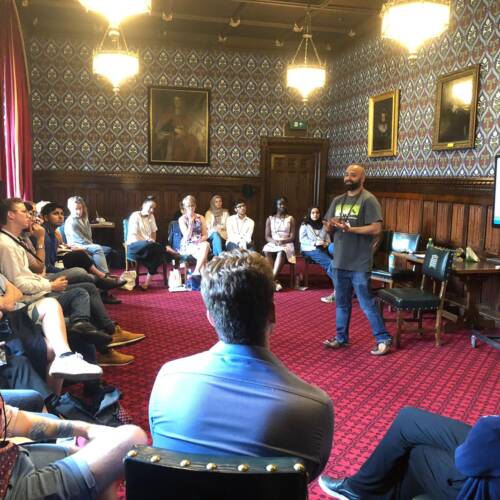
Post-Lockdown: How Has Covid-19 Impacted the UK Economy?
04 Jul 2020The “biggest step yet on our road to recovery,” was proclaimed on Friday by Boris Johnson as a number of businesses within the hospitality sector, like cafes, restaurants and hotels, are reopening in England for the first time since lockdown began. Judging by the most recent Office for National Statistics (ONS) figures however, this “road” will be a long one.
With the incremental easing of lockdown restrictions happening at different speeds across the United Kingdom, the economic figures of the first quarter of 2020 paint a bleak picture of the coronavirus’ impact on the economy of which experts had previously underestimated.
The UK economy experienced its sharpest decline in over 40 years, with the economy contracting by 2.2% in the first three months of the year. Bear in mind however, that this only includes just nine days of the lockdown period. GDP in March alone fell by 6.9%. Although figures for the second quarter are not to be released for weeks, estimates say that this contraction was only a tenth of the size of the contraction activity in just April alone. A dismal sight as the UK now hits 45,000 deaths and over 280,000 cases of the virus.
A historically unprecedented experiment, on March 23rd the government put the economy on pause, something that has never been done before in modern history. Not even during the Spanish Flu pandemic a century ago, were large parts of economy switched off in such a way to tackle the spread of the virus. Largely in part because we now have the resources and technologies to initiate such a widespread public policy decision. What is significant is that the pandemic hasn’t just impacted our economy but how we fundamentally think about its nature and operation.
Nevertheless, all non-essential businesses were shut down and multiple industries were hit hard by the abrupt pause. The services industry, which accounts for around 80% of the UK’s economic output, was impacted the worst as restaurants, bars and retail shops were forced to close. As a result, household consumption fell by 2.7% between the last quarter of 2019 and the first quarter of 2020.
As members of the public ceased to spend their money on things like events, clothing and hotel visits, this culminated in a cash terms consumption decrease of over £9.5 billion, the largest nominal fall on record. The services sector overall shrank by a record 2.3%.
The UK’s travel and tourism sector also endured a punch to the gut during lockdown with millions of jobs at risk, but with government plans to lift the quarantine for travellers from 59 nations, the industry is cautiously welcoming the easing of restrictions as all but essential travel was advised by the government for months.
Over 9 million workers were enrolled onto the government’s furlough scheme, designed to prevent mass redundancies by putting workers on leave but keeping them on their company’s payroll, with workers still receiving up to 80% of their wages. The scheme is estimated to cost the government around £80 billion in total but changes to the policy were recently announced by the Chancellor as employers will have to start contributing to the scheme in August.
The United Kingdom is on course for a deep recession, there is no question about that, but opinion is somewhat divided over the speed at which a recovery can take place. The ONS flash estimate for April, being a 20% drop in economic output, marks the low point of the downturn and some experts are predicting a return to clear growth in the third quarter of the year.
Make no mistake however, the extent to which a recovery can happen rests on many contingencies. The status of the virus is the obvious one, with the preconditions of its eradication being an accessible vaccine and a competent government.
Regarding the latter, Boris Johnson’s pandemic response has been underwhelming and disappointing to many in the country. As job losses are making daily leaps and household income is set to fall, Johnson recently announced the implementation of his ‘New Deal’, a £5 billion infrastructure investment to help the UK’s economy. And when I say ‘UK’, I really mean England, because not a penny of that investment is going anywhere else in the Union – including Wales. And with an estimated £69 billion in losses for small businesses over the lockdown period, the government will have to spend much more if they really want to stimulate the economy and aid a recovery.
Regarding the lack of investment in Wales, this links to a wider issue of the integrity of the Union itself and whether, because public health is a devolved matter for Scotland, Nothern Ireland and Wales, the pandemic has exposed the disparities of the nations and hastened the political breakdown of the United Kingdom. If Brexit didn’t do that already, the pandemic certainly has.
And about Brexit, regarding the economic impact of the virus, it will also play a large role as to whether the light at the end of the tunnel comes sooner rather than much later.















